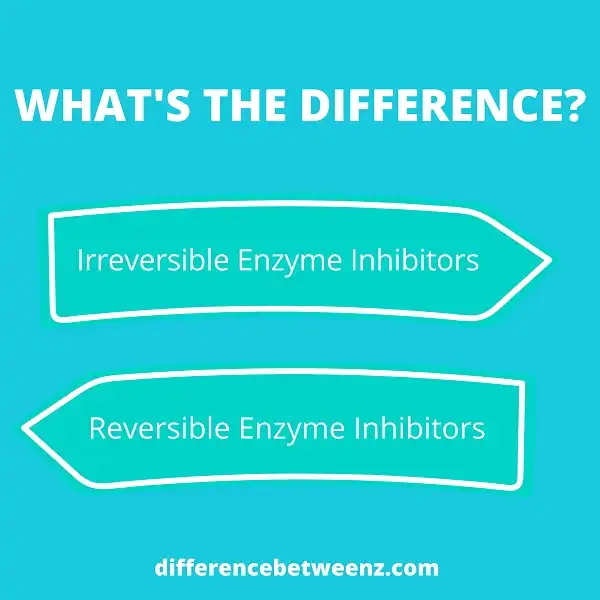Enzymes play a critical role in biochemical processes within the body, and as such are often targeted by pharmaceutical drugs. Two major types of enzyme inhibitors have been developed to interfere with enzyme action – Irreversible Enzyme Inhibitors and Reversible Enzyme Inhibitors. Each inhibitor type has its own advantages and disadvantages that make it suitable for different scenarios, so understanding the differences between them is essential to ensure effective drug discovery and therapeutic success. In this blog post, we’ll discuss the properties of reversible versus irreversible enzyme inhibition, their uses in medicinal context, potential implications, and more!
What are Irreversible Enzyme Inhibitors?
Irreversible Enzyme Inhibitors are a type of molecule that target an enzyme, permanently modifying it and preventing its activity. Irreversible enzyme inhibitors are often designed to form strong covalent bonds with the active site of the enzyme.
This chemical bond permanently inactivates the target enzyme, thus effectively stopping any related chemical reactions in the body or in a laboratory. Irreversible Enzyme Inhibitors are important components in drug design – they may be used as therapeutic agents to alter metabolism, or as probes to study enzymes in laboratories.
Irreversible Enzyme Inhibitors can also serve as diagnostics for various conditions due to their specificity and binding strength. By using Irreversible Enzyme Inhibitors, scientists can gain insights into cell processes that haven’t been properly studied before due to lack of research tools.
What are Reversible Enzyme Inhibitors?
Reversible enzyme inhibitors are molecules that bind to an enzyme, temporarily altering its form and activity. These inhibitors can control the functioning of an enzyme by occupying its active site, making it difficult for a substrate to enter and react.
- Reversible inhibitor enzymes have an advantage over irreversible enzyme inhibitors as they typically require just a small bump in concentration before the enzyme resumes their normal function without having to synthesize new enzymes.
- Reversible enzyme inhibition is most often used in the medical industry, where drugs interact with receptors on enzymes and cellular walls to slow down or speed up metabolic processes.
- It’s vital to understand how reversible inhibitors could be used as it is a powerful tool for designing drugs that help patients combat a variety of diseases, from cancer to chronic pain relief.
Differences between Irreversible Enzyme Inhibitors and Reversible Enzyme Inhibitors
Irreversible and reversible enzyme inhibitors are two unique approaches to affecting chemical reactions within the human body. Irreversible enzyme inhibitors bind to an enzyme, making it impossible for that enzyme to carry out chemical reactions, while reversible inhibitor molecules rather compete with the substrates for binding sites on the active site of enzymes, effectively blocking the active site until the inhibitor is removed.
- Irreversible inhibitors can be used at low concentrations and are effective for extended periods of time due to their permanent effects on enzymes, but reversible inhibitors need to be administered at higher concentrations and frequently because their effects can wear off quickly.
- Irreversible enzymes also typically have more toxic side-effects than reversible inhibitors as they usually require stronger chemicals to make them work.
- Irreversible and reversible enzyme inhibitors both have important roles in medical treatment, but understanding how they interact with enzymes is key to maximizing their effectiveness while minimizing side-effects.
Conclusion
Inhibitors can be classified as either reversible or irreversible. Irreversible inhibitors permanently bind to the enzyme, preventing it from functioning. Reversible inhibitors do not bond with the enzyme permanently; they dissociate after a certain amount of time. Which type of inhibitor is more effective depends on the situation. Generally, irreversible inhibitors are used in research because they provide more information about how an enzyme works.


